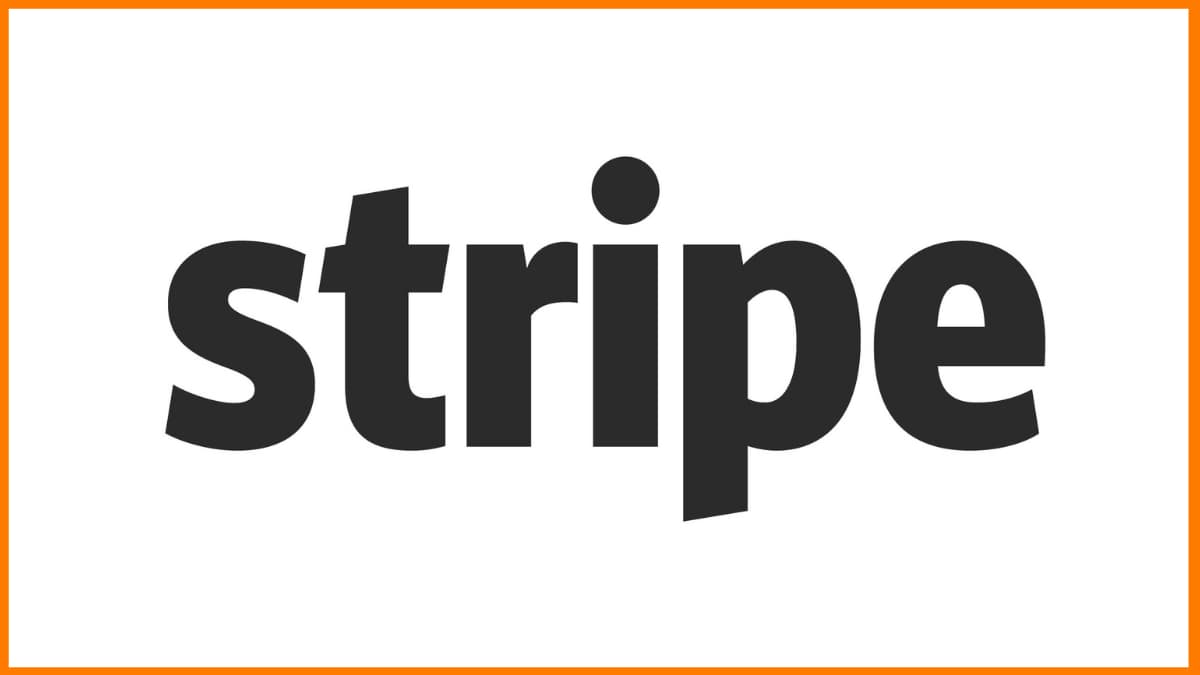With the rise of technology, it was just a matter of time before people shifted to online transactions. While this mode of payment became popular, many companies introduced the idea of e-wallets. One company that stands out in this space is MobiKwik. It is an Indian fintech unicorn that has made digital payments simpler and more accessible for users.
Behind the success of MobiKwik is a determined leader, Upasana Taku. The company was founded in 2009 by Upasana Taku and Bipin Preet Singh. Taku has played an important role in building the company and taking it to greater heights. Under their leadership, MobiKwik became a prominent player in the fintech industry. In December 2024, the company went public with its IPO opening for public subscription.
In this article, learn more about MobiKwik’s co-founder Upasana Taku, her education, her career, the challenges faced, and more.
Upasana Taku – Biography
| Name | Upasana Taku |
|---|---|
| Birthplace | Gandhinagar, Gujarat |
| Born | 1980 |
| Nationality | Indian |
| Education | B.Tech in Industrial Engineering (NIT Jalandhar), MS (Stanford University) |
| Profession | Entrepreneur |
| Position | Co-Founder, Executive Director & CFO of MobiKwik, Co-Founder of Zaakpay |
| Spouse | Bipin Preet Singh |
| Company | One Mobikwik Systems Ltd (MobiKwik) |
Upasana Taku – Early Life and Education
Upasana Taku – Career
Upasana Taku – MobiKwik
Upasana Taku – Coming Out of The Comfort Zone
Upasana Taku – The Journey of MobiKwik’s Growth and Milestones
Upasana Taku – Challenges Faced
Upasana Taku – Success Mantra
Upasana Taku – Awards & Recognition
Upasana Taku – Early Life and Education
Upasana Taku was born into a Kashmiri family in Gandhinagar and grew up in a family of academicians. She completed her schooling in Surat and went on to pursue engineering at the prestigious Dr B.R. Ambedkar National Institute of Technology, Jalandhar. Taku holds a B.Tech degree in Industrial Engineering from that institute. She did her MS in Management Science and Engineering from Stanford University, USA.
Upasana Taku – Career
After completing her Master’s, Upasana Taku’s career began in 2004 at HSBC Auto Finance in San Diego. She worked as a Business analyst in product management, where she was successful in many areas, like marketing and outreach, forecasting, and market research. She then joined PayPal in 2006. There, she worked as a Senior Product Manager. During her tenure at PayPal, she learned about payment systems in the Americas, Europe, and Asia. Apart from that, she also gained knowledge about risk detection and fraud management, user experience, and design at PayPal.
All these experiences laid a solid foundation for the founding of MobiKwik in 2009. In 2012, Upasana Taku launched Zaakpay, a payment service by MobiKwik. It offers mobile and online payment solutions to eCommerce companies in India, staying true to the values of its parent company.
Currently, Upasana Taku serves as the Co-founder, Executive Director, and CFO of MobiKwik, where she continues to work on the company’s financial strategies and growth.

Upasana Taku – Coming Out of The Comfort Zone

In 2008, although she had a comfortable life with her corporate job, she realized that she no longer wanted to be a corporate drone. According to her, work was becoming too easy, even though she worked on some high-impact projects and accumulated millions of dollars. But she wanted to come back to India and contribute to the Indian startup ecosystem. Well, this was the turning point of Taku’s career!
Her family didn’t support her decision to return to India, as they saw it as a big risk. At PayPal, she had a successful career, and she enjoyed a comfortable life. Despite all this, she was back in India in 2008.
While she was figuring out her next steps, she worked with Drishtee, a rural microfinance NGO, in Bihar and Uttar Pradesh, helping to empower local communities while gaining a deeper understanding of the challenges and opportunities in rural India.
In the subcontinent, she met a lot of people and extracted ideas about the buzzing sectors and unsolved gaps in the business and startup ecosystem. According to her, a wallet like PayPal was not popular in India. Therefore, users could never imagine a cashless world. Well, the example of India gave the idea to resolve this gap and work for the advancement of technology in the country.
While working on her ideas and project, she happened to meet Bipin Preet Singh in India through a common friend. Together, they started their fintech venture with a shared vision of disrupting the payments industry in India.
“It was a time when our parents would go to a nearby shop to recharge phones and that is when the idea of a mobile wallet business struck us which could pave a way to make consumer payments simpler. Fast forward to now, India is at the cusp of a digital revolution and the payments industry is witnessing a disruption like never before. We kind of saw this coming almost a decade ago,” said Taku in an interview.

Upasana Taku – MobiKwik

Upasana Taku co-founded MobiKwik in 2009 with Bipin Preet Singh, who serves as the CEO and is also her husband. MobiKwik is one of India’s leading mobile wallets and financial services platforms. The app allows users to make payments like mobile recharges, bill payments, and bank transfers. It also offers services like instant digital loans, investment options in digital gold, mutual funds, fixed deposits, and credit card bill settlements.
A key feature of MobiKwik is Pocket UPI. This allows users to make UPI payments without linking their bank accounts. Under Upasana’s leadership, MobiKwik has expanded its services, making it one of the most trusted and widely used platforms in India.
Upasana Taku – The Journey of MobiKwik’s Growth and Milestones
Upasana Taku’s Mobikwik is very simple and need-based. Initially, they launched the company as a recharge platform, and soon, within a few years, it became the face of mobile wallets in the country. At a time when people were dependent on physical cash for a trivial amount like INR 10, Taku revolutionized the sector by bringing the concept of a physical wallet onto the big stage. Presently, a millennial or Gen Z cannot imagine going to a shop for small recharges; all he/she need is to use an app to cover all the recharges. Now, Mobikwik has grown exceptionally as a company. In 2010, the company hired its first employee, and it was somehow very difficult for the team to find someone with the same mindset to serve the community.
In 2011, the team grew very slowly, with a team member count of six! They were dependent on the home-office sector. Even on their wedding day, Taku and Bipin Preet had to work for the company! Later in 2011, they rented their first office which had five rooms. Within a short period, they were growing at an exceptional pace and were a team of 35 people by June 2012. In September 2012, the team applied for RBI’s PPI license, and they received it in July 2013.
This was a milestone for the team as it was a symbol of their growth. The first round of the company’s funding was $5 million, which enabled them to shift to a larger office in Udyog Vihar, Gurugram, with 50 employees. The second round of funding came in 2015, they were able to draw funding of $25 million from Sequoia Capital, American Express, Tree Line Asia, and Cisco Investment.
Under her leadership, MobiKwik achieved major milestones, becoming a unicorn startup in October 2021 and launching its IPO in December 2024.

Upasana Taku – Challenges Faced
Upasana Taku’s journey has not been easy. When she was starting MobiKwik, she faced some tough challenges, especially because she was a woman in a male-dominated field. During investor meetings, she was often asked personal questions like why she wasn’t married by 30 or how many children she had. People even mistook her for her husband’s assistant instead of recognising her as a co-founder. New employees at the company would also question whether they should report to her or a male manager.
Taku faced gender bias in the investor meetings as well. She shared that some financiers told her they preferred male founders. In response, she would confidently say that her male counterparts might not be able to answer their questions as well as she could. She made it clear that she would never work with such people.
Despite these challenges, she remained focused, communicated clearly, and continued working towards the success of her company. Even when she was pregnant, she didn’t slow down. Upasana continued working and even attended a board meeting just a day before her cesarean surgery. Coming from a lower-middle-class background, she worked hard to earn a scholarship to study at Stanford University in the US.
While things are slowly getting better for women in business, Upasana acknowledges that there is still progress to be made. Her story is a great example of how, with hard work, determination, and courage, women can overcome any challenge.
Upasana Taku – Success Mantra
Taku’s mantra “Kick up a storm or die trying” has helped her to stay focused in difficult times. According to her, Tenacity is the key. Hence, her hard work and desire to serve the startup community have made her an inspirational figure for many aspiring entrepreneurs.

Upasana Taku – Awards & Recognition

- Forbes “Asia’s Women to Watch (2016)”
- Best Woman Entrepreneur Award 2017 by Associated Chambers of Commerce and Industry of India (ASSOCHAM)
- In 2018, she received an award from the President of India for being the First Woman to lead a Payment Gateway Startup in India.
- Forbes Asia’s Power 25 Businesswomen (2019)
- In 2024, she was honoured with the ‘Unstoppable Icon’ award and recognised as India’s Leading Tech Founder & one of the Top 15 Richest Self-made Women in India.
- In April 2025, Taku was recognized in Fortune India’s “100 Most Powerful Women in Business 2025” list, celebrating her impactful leadership and achievements in fintech.
- Taku has been appointed as the Vice-President of the Executive Committee at the Unified Fintech Forum (formerly DLAI).

FAQs
Who is Upasana Taku?
Upasana Taku is the co-founder and CFO of Mobikwik, India’s leading mobile wallets and financial services company.
What is Upasana Taku age?
Upasana Taku was born in 1980 into a Kashmiri family in Gandhinagar and grew up in a family of academicians.
What is Upasana Taku education?
Upasana Taku’s education includes a B.Tech in Industrial Engineering from NIT Jalandhar and an MS from Stanford University.
What is Upasana Taku net worth?
While the exact net worth of Upasana Taku is not publicly available, in 2024, she was recognised as India’s Leading Tech Founder and one of the Top 15 Richest Self-made Women in India by CNBC-TV18.
What is Upasana Taku’s MobiKwik net worth?
As of May 12, 2025, MobiKwik’s market capitalisation stands at approximately INR 1,925 crore (around $232 million), based on its current share price of INR 247.80. This reflects a significant decline from its peak valuation of INR 4,102 crore (approximately $494 million) during its IPO debut in December 2024.
Who is Zaakpay founder?
Zaakpay, co-founded by Upasana Taku and Bipin Preet Singh (also MobiKwik co-founders), is a payment gateway service provided by MobiKwik. It focuses on fast, innovative digital payment solutions, tackling challenges in payments, reconciliations, and user experience. Recently, Zaakpay received RBI approval to operate as an online payment aggregator, further enhancing its capabilities.









































































